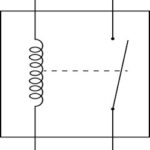Does Autozone Check Alternators? Yes, they do. But this service may not always be accurate for modern vehicles. This article shares a personal experience highlighting the potential pitfalls of relying solely on in-store alternator tests.
AutoZone, like many auto parts stores, offers free alternator testing. This seemingly helpful service can be invaluable in diagnosing charging system issues. However, as my experience demonstrates, these tests can sometimes lead to misdiagnosis, especially in newer vehicles with computer-controlled charging systems.
My Jaguar XK exhibited a slight hesitation when starting, particularly in cold weather. Suspecting a battery or alternator problem, I visited AutoZone for testing. Their equipment indicated a low alternator output of only 24 amps, suggesting a faulty alternator. Based on this, the AutoZone employee advised immediate replacement and cautioned against driving the vehicle.
Following this recommendation, a new alternator was purchased from the dealership for $290 and installed. A retest at the same AutoZone yielded a similarly low reading, around 30 amps, further reinforcing the initial diagnosis. However, seeking second and third opinions at Advanced Auto and Pep Boys revealed a perfectly functioning charging system. Both confirmed no issues with the alternator or battery.
It turns out modern vehicles, like my Jaguar XK, utilize a Powertrain Control Module (PCM) to regulate alternator output. This PCM adjusts the charging rate based on various factors, including engine load and electrical demand. Consequently, a static test, like the one performed at AutoZone, might not accurately reflect the alternator’s true performance under normal operating conditions. In my case, the low readings were likely due to the lack of load during the test, not a faulty alternator.
Unfortunately, the dealership’s no-return policy on electrical parts meant I was stuck with an unnecessary $290 expense. The original slight hesitation during starting was likely attributed to the extreme cold weather, not a failing alternator.
This experience underscores the importance of understanding the limitations of in-store alternator testing. While these tests can be helpful as an initial diagnostic step, they shouldn’t be the sole basis for major repair decisions, especially for newer vehicles with complex charging systems. Consulting a qualified mechanic who can perform a more comprehensive diagnostic is crucial for accurate troubleshooting. In my case, seeking multiple opinions saved me from further unnecessary repairs. Remember, sometimes a simple cold snap can mimic the symptoms of a charging system problem. Don’t always jump to conclusions based on a single test.

